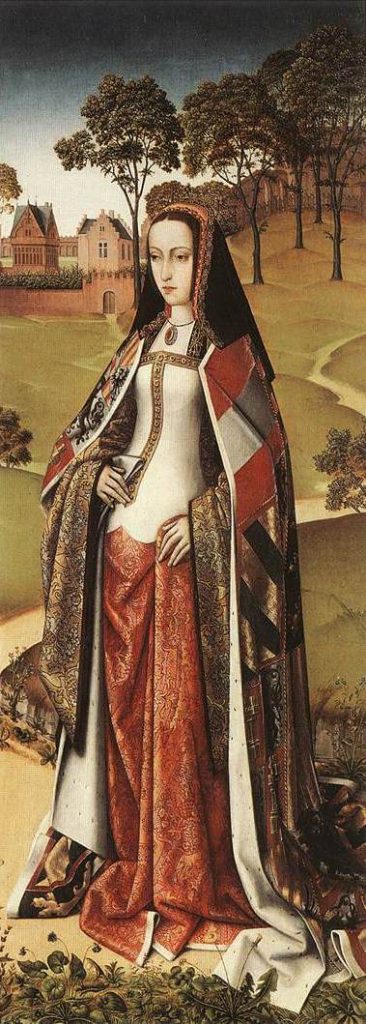The early sixteenth century showed little change in fashion from the late fifteenth century. In women’s clothing, a smock/chemise made up the foundation of a woman’s dress. These were easy to wash and were often adorned with embroidery near exposed parts such as the wrist or neck. A petticoat (kirtle) was then joined to the bodice or skirt. It was often made of more decorated fabric as it was the most visible. Sleeves had large openings at the wrist and cuffs were often folded back to contrast with the fur lining. Girdles/belts were very common and, with garters, these held up stockings.

Square necklines were very in fashion as well as extravagant trains and big skirts. In the figure above, you can see the fur lining inside the sleeves as mentioned above.

Under Henry VIII (1485-1509), women wore low waisted gowns, square necklines, and long tight sleeves. Of Henry’s six wives, different trends influenced english nobility. Jane Seymours scalloped sleeves are seen in many other noble portraits of the time. each queen wears a different headpiece in their portraits.

https://www.theartstory.org/movement/high-renaissance/artworks/
Leave a Reply